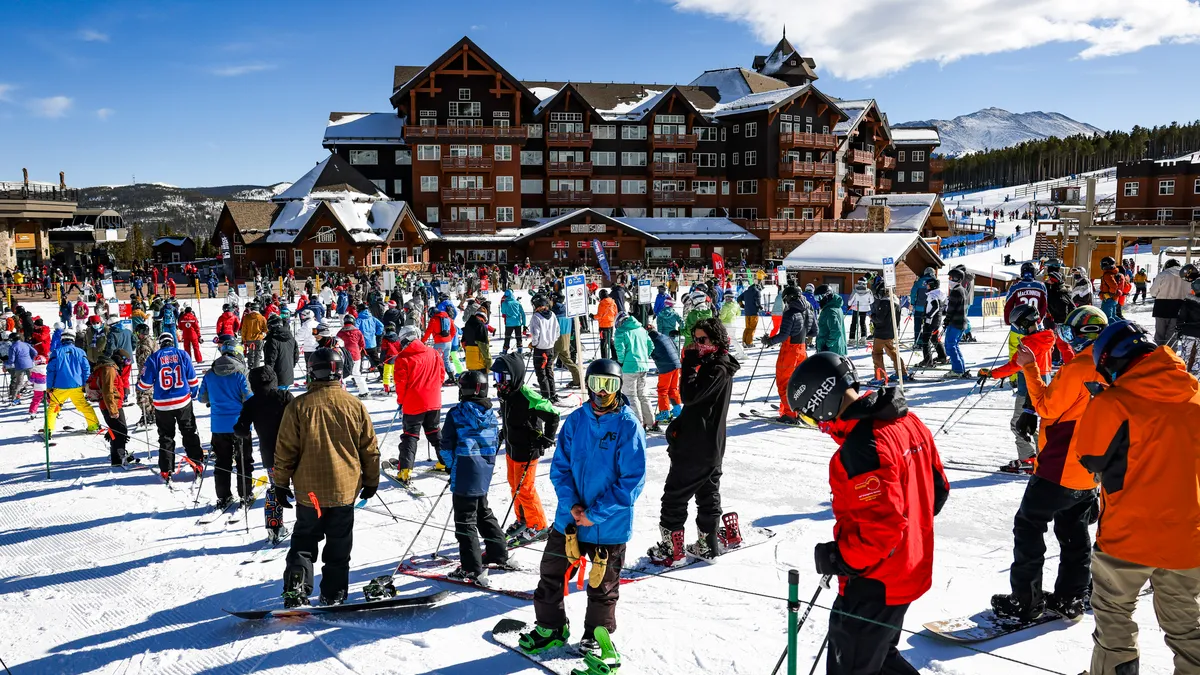Dive Brief:
- Vail Resorts’ CFO and executive vice president, Michael Barkin, is stepping down after nearly 10 years in the role, to pursue personal opportunities, the company announced Monday.
-
The resignation will be effective Dec. 31 or as mutually agreed based on the timing of appointing a successor, according to the Broomfield, Colo.-based company that operates such top ski areas as its namesake Vail in Colorado, Whistler Blackcomb in Canada and Stowe in Vermont.
- Barkin’s exit comes several months after CEO Kirsten Lynch announced a new $20 per hour minimum wage for employees at its 37 North American resorts and a doubling of merit increases for salaried employees to an average of 6% from 3%, in a March letter to employees detailing a “pivotal shift” to focus on employees in the wake of worker shortages.
Dive Insight:
Barkin played a key role in the company's expansion nationally and globally — through the acquisition and integration of 34 resorts across four countries, Rob Katz, executive chairperson of Vail Resorts said in a statement. Barkin, who previously worked at Bain Capital Partners and KRG Capital Partners, joined Vail in July 2012 and was named CFO in March 2013.
The ski industry has faced headwinds from variable weather due to climate change and worker shortages. Vail’s new initiative includes an incremental $175 million investment in employees, Lynch wrote to employees, adding that the company cannot realize its mission of creating “an Experience of a Lifetime for our guests without first creating an Experience of a Lifetime for you — unfortunately, we have fallen short on that.”
Earlier this year worker shortages left some parts of popular resorts closed and drew some criticism of crowded conditions, according to a Jan. 21 2022 Morningstar report.
Vail shares, which have fallen more than 30% year to date, were trading at $211.58 Monday afternoon. The company reported net income of $372.6 million in the quarter ending April 30, up from $274.6 million in the year-earlier period, outperforming due in part to fewer restrictions related to COVID-19 this year.














